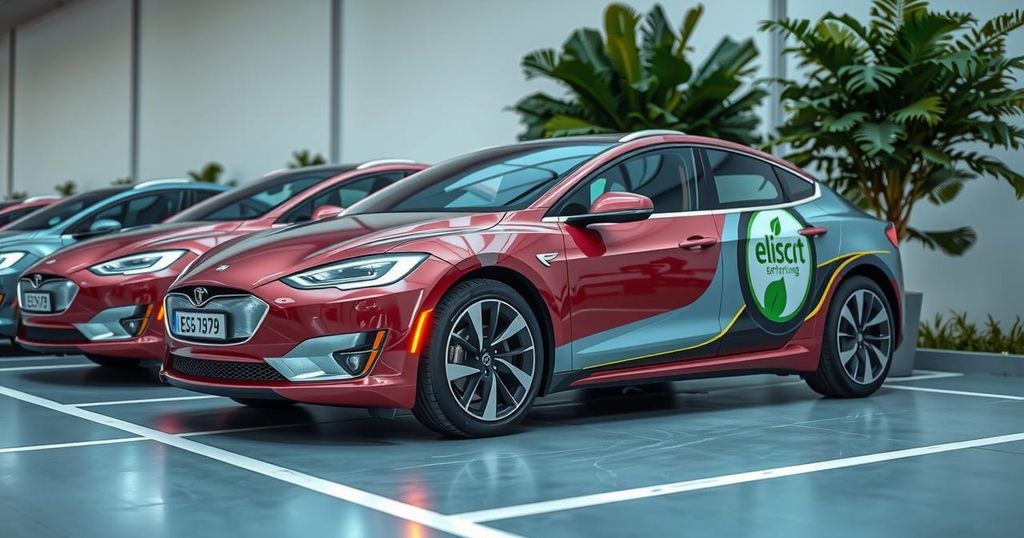Nigeria’s Path to Sustainable Transportation: The Case for Electric Vehicles
Sunday Aluko, an automotive expert, urges Nigeria to adopt electric vehicles to decrease fuel imports and revolutionize transportation. He highlights the need for infrastructure investment and government incentives to facilitate the transition, pointing out that electric vehicle adoption aligns with global sustainability goals and offers economic benefits.
A prominent expert in the automotive manufacturing sector, Sunday Aluko, has advocated for Nigeria to embrace electric vehicles (EVs) as a means to reduce reliance on fuel imports and transform the nation’s transportation framework. During a recent discussion, he underscored the pressing necessity for reforms across Nigeria’s energy, transportation, and automotive manufacturing industries to enable the transition to electric mobility.
Aluko pointed out that the escalating fuel inflation, persistent supply shortages, and challenges like fuel theft highlight the imperative for Nigeria to consider adopting eco-friendly electric vehicles. His extensive research indicates that EVs present a viable solution to the country’s transportation and energy challenges, which have been exacerbated by traditional fossil fuel dependency.
Moreover, he emphasized the urgent requirement to invest in the necessary infrastructure for electric vehicles, including charging stations, to combat environmental degradation, diminish fuel dependency, and foster economic growth. “Without the right policies and infrastructure, the transition will remain a distant goal,” Aluko stated, highlighting that government incentives such as reduced import duties on EVs and tax breaks for manufacturers are critical to facilitate this shift.
In pursuit of a sustainable automotive industry, Aluko articulated a vision for Nigeria to emerge as a leader in green mobility solutions across Africa. He asserted, “The shift to electric vehicles is not just an environmental necessity; it’s an economic opportunity.” He enjoined stakeholders to prioritize investment in EV infrastructure and consumer awareness to streamline the country’s logistics and reduce fuel dependence.
Aluko further recommended innovative strategies to enhance electric vehicle adoption. These include establishing solar-powered charging stations and introducing affordable financing options, which he believes will catalyze the transition towards sustainable transportation in Nigeria. He firmly maintained that with conducive policies and increased public awareness, Nigeria could significantly advance toward economic growth and energy independence through the adoption of electric vehicles.
Electric vehicles represent a transformative shift in automotive technology, promoting environmental sustainability and reducing dependency on fossil fuels. As global demand for cleaner energy solutions rises, nations like Nigeria face mounting pressures to revamp their transportation sectors. The focus on EVs aligns with global sustainability goals and offers economic advantages by potentially reducing fuel import costs and positioning the country as a key player in the green economy.
In conclusion, Sunday Aluko’s insights underscore the potential benefits of embracing electric vehicles in Nigeria. With the adoption of supportive policies and infrastructure investments, Nigeria could pave the way towards energy independence and environmental sustainability. The transition not only holds the promise of economic growth but also positions the nation to lead in green mobility solutions across Africa. Therefore, it is crucial for stakeholders, including the government and private sector, to collaborate and implement innovative strategies to accelerate this necessary shift.
Original Source: punchng.com




Post Comment